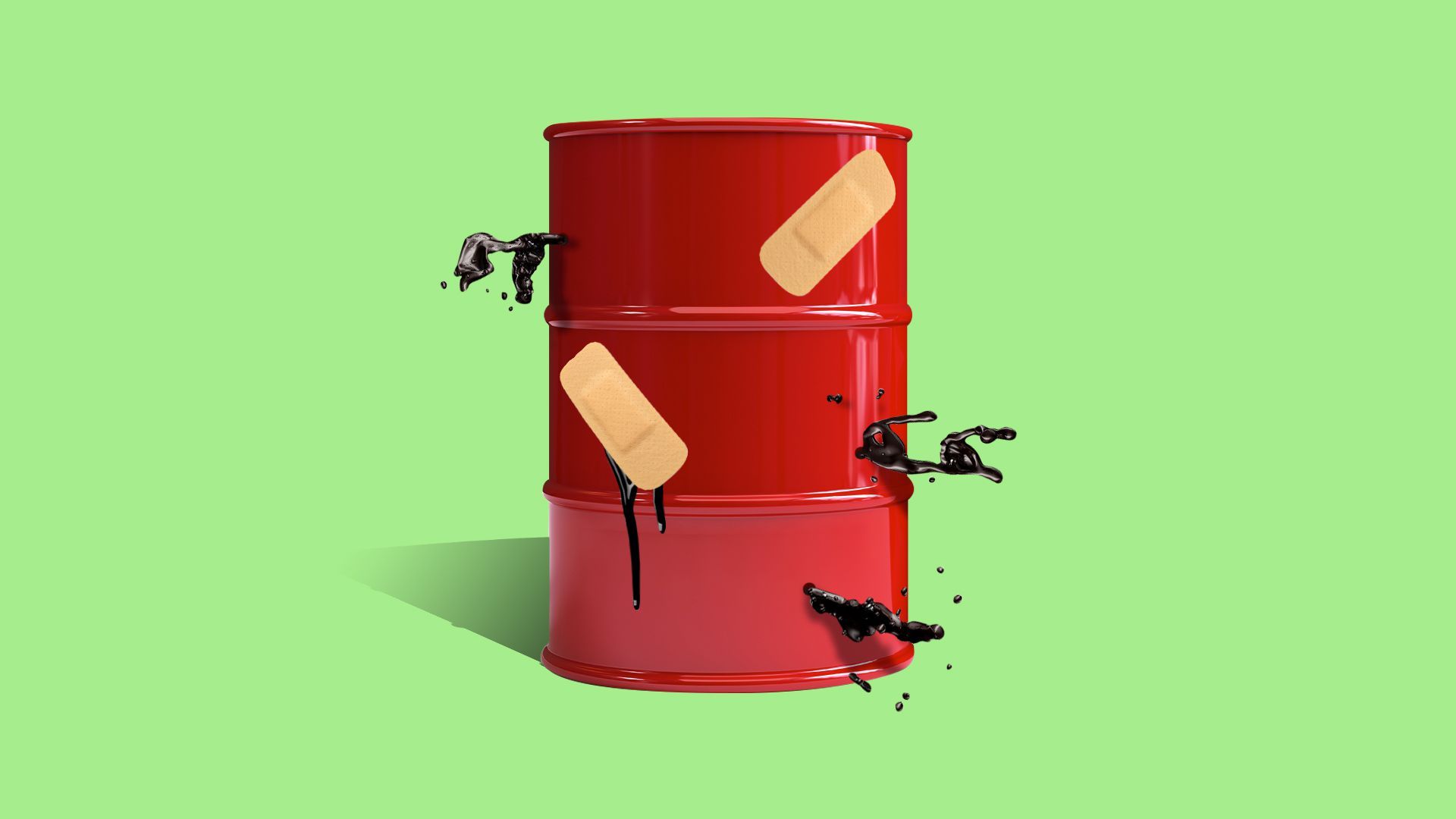Fed expands coronavirus business loans, paving the way for oil relief
Add Axios as your preferred source to
see more of our stories on Google.

Illustration: Aïda Amer/Axios
Democratic and Republican lawmakers have lined up on opposing sides of the Federal Reserve's decision to expand its $600 billion Main Street Lending Program and give loans to a wider range of businesses suffering from the economic effects of the coronavirus.
The big picture: The changes, urged by oil state Republicans like Sens. Kevin Cramer of North Dakota, Ted Cruz of Texas, and Alaska’s Lisa Murkowski, will allow oil and gas companies to qualify for the aid, Bloomberg reports.
Our thought bubble, via Axios' Dion Rabouin: The Main Street Lending Program is the Fed's attempt to get money directly to more American businesses that have been left out of the Paycheck Protection Program and other CARES Act initiatives.
- But by opening their lending up to oil companies, many of which are heavily indebted and have low credit ratings, they could reap some goodwill in certain circles but risk real reputation damage in others.
What's new: Businesses with up to $5 billion in annual revenue are now eligible for support through the Fed's program, as are companies with up to 15,000 employees, the Fed said in a Thursday press release.
- Previously, companies with as many as 10,000 workers but under $2.5 billion in revenue were eligible for help.
- The Fed also reduced the minimum loan size to $500,000, allowing medium-sized businesses to get funding.
What we're hearing: "This will change the perception of the government’s framework and approach to dealing with the crisis," Joe Brusuelas, chief economist at tax and consulting firm RSM, tells Axios.
- "Over time the Main Street program will overshadow the SBA and PPP, which have been an unmitigated disaster in terms of public optics."
Between the lines: "The Fed’s approach to tweaking the Main Street loan program avoids creating an oil industry-specific initiative that could be unpopular with the public or require approval from Congress, where Democrats are deeply opposed," Bloomberg reports.
Where it stands: Almost 70% of all debt in the U.S. oil and gas sector — which comes to roughly $64 billion — is trading at distressed levels.
- Owners of oil are asking companies storing other liquid products — ranging from ethanol to vegetable oils — if they can rent their tanks, due to a massive oversupply and little demand.
- Texas, the largest oil-producing state in the U.S., will decide on Tuesday whether to mandate oil production cuts in the state.
The other side: “It’s outrageous that small businesses are fighting for limited funds, while the Trump administration is bending over backwards to shower these oil companies with billions of taxpayer dollars," Senate Minority Leader Chuck Schumer said in a Thursday press release.
- “Oil and gas drillers were in dire financial straits well before COVID-19 struck. Since Congress rejected a direct fossil fuel industry bailout in the CARES Act, the industry has been pushing to tweak the rules to gain access to credit from the Federal Reserve," Environment America's renewable energy campaign director Emma Searson said in a statement on Thursday.
Go deeper: World locked down and drowning in oil
